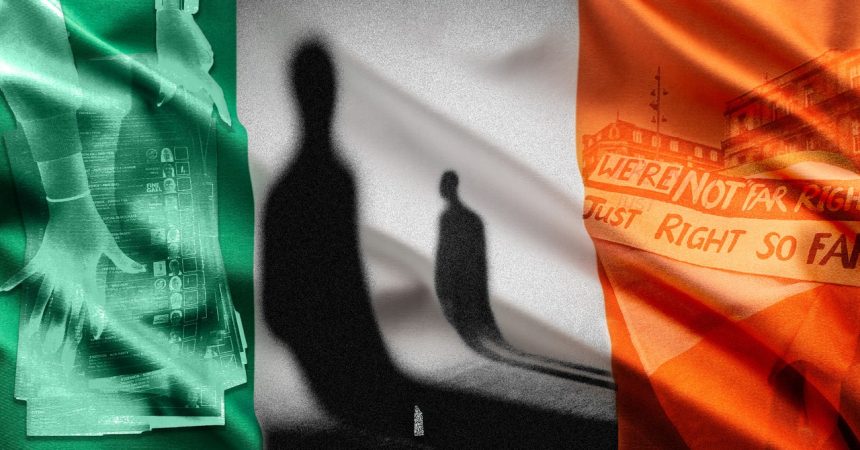In the recent general election in Ireland, far-right candidates failed to secure any parliamentary seats, despite a growing global trend of rising populist and far-right movements in Europe and the United States. The notable disappointment for these candidates was evident in their post-election reactions, mirroring the rhetoric of “stop the steal” that characterized former President Donald Trump’s claims after the 2020 U.S. election. One of the candidates, Philip Dwyer, expressed disbelief at his results, stating on social media that receiving only one vote from a polling location was indicative of potential election interference. Having garnered a meager 435 votes out of approximately 57,000, Dwyer referenced Newtownmountkennedy—site of violent anti-immigrant protests he had previously documented—as a focal point of his campaign troubles.
Dwyer’s assertions of electoral unfairness resonated with other unsuccessful far-right candidates, including Derek Blighe, leader of the Ireland First party. Blighe unsubstantiatedly claimed on social media that voter identification procedures were insufficient, ballot integrity was compromised, and that at least one individual was able to cast multiple votes. He further questioned the integrity of the electoral process without providing substantive proof, demonstrating a tactic commonly seen among disenchanted populist figures: fostering distrust in established systems. In response to inquiries regarding his claims, Blighe resorted to name-calling, illustrating the defensive nature of his communication strategy in the face of scrutiny.
Following the election, the sentiment around potential election fraud escalated on social media platforms, particularly on X (formerly Twitter). The term “rigged” became a trending topic, fueled by claims from online accounts that alleged the existence of voter fraud impacting the electoral outcomes for right-wing parties. Despite the volume of these assertions, validation of the claims was notably absent during this online discourse, leading to a growing landscape where conspiracy theories began to proliferate unfettered. An Irish-focused conspiracy account with a significant following discussed “substantial evidence” of fraud, yet failed to provide tangible proof, indicating a disconcerting trend towards baseless allegations compounding dissatisfaction with electoral results.
The ability of far-right figures in Ireland to mobilize support has been increasingly influenced by prominent American far-right individuals. Over the past year, connections have formed that have seen these influential figures attempting to bolster Ireland’s own far-right movements. Just a day before the election, Elon Musk shared a post from a high-profile figure within Ireland’s far-right sphere, advocating for freedom and framing the electoral decision as a crucial one for the Irish people, suggesting that international figures are not just observers but actively participate in shaping political discourse on a global scale. This connection underscores the transnational nature of far-right movements in modern politics.
As election results continue to pave the way for Ireland’s incumbent government, the far-right’s rhetoric of victimhood and mistrust showcases a deeper struggle within the party’s ranks. It brings to light the challenge they face in a political environment that remains resistant to their ideologies at the ballot box. Ireland’s political landscape remains largely unyielding to the far-right’s narrative, suggesting that their popularity may not be as robust as they claim. This reality may necessitate these parties to recalibrate their approaches if they hope to gain traction in future elections.
Ultimately, the far-right candidates in Ireland are grappling with the intersection of local electoral realities and global populist trends. Rather than galvanizing a substantial base of support, they find themselves resorting to familiar tropes of election fraud and systemic manipulation to explain their failures. This reliance on unfounded claims of conspiracy may not only alienate them from potential voters who are more inclined toward evidence-based discourse but might also place their movement in a precarious position, perpetuating a cycle of disenchantment that undermines their credibility as genuine political challengers. As Ireland moves forward, it will be essential to monitor how these dynamics evolve and whether the far-right can adapt to a landscape that currently seems resistant to their ideology.



